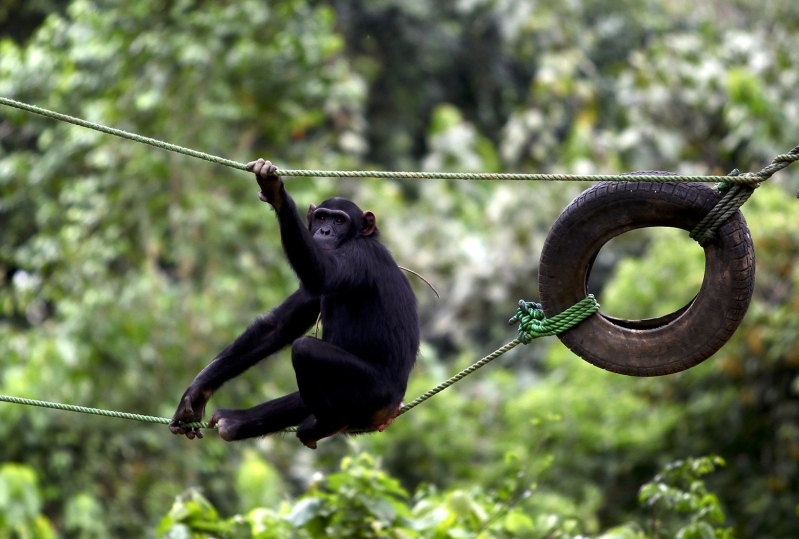
A team of scientists took issue on Monday with a study published in February claiming to demonstrate vocal learning by chimpanzees in their food grunts, saying the researchers offered exaggerated assertions backed by scant evidence.
The authors of that study in the journal Current Biology, which received wide media coverage, stated chimps joining another troop changed their calls to match their new peers in a finding interpreted as shedding light on language evolution.
They called it the first evidence that animals besides humans can replace the vocal sounds their native group used for objects, in this case apples, with those of their new group.
Julia Fischer of the German Primate Center, New York University's James Higham and the University of Kent's Brandon Wheeler, re-analyzing the study for the same journal, questioned its methods and said the researchers misrepresented data and failed to rule out alternative explanations.
The original study's eight authors stood by their findings and offered a rebuttal of the new analysis.
"This was a pretty drastic example of exaggerated claims based on a thin data set," Fischer said.
"Some people are more happy to accept a wild explanation. Others aren't."
Fischer said the main findings of the re-analysis were that the chimps' vocalizations did not differ substantially in the first place and the observed shifts in some call characteristics were nothing new.
"It seems a stretch to make bold claims about language evolution from these data," Higham added.
The study focused on chimps moved in 2010 from a Netherlands safari park to Scotland's Edinburgh Zoo to live with other chimps there. Three years later, the grunt the Dutch chimps used to refer to an apple changed from a high-pitched eow-eow-eow to the lower-pitched udh-udh-udh used by the Scots, those researchers said.
"The original study evoked the impression that there are resident Scottish animals, and then a group of Dutch animals is introduced and they 'start to speak like the Scottish animals,'" Fischer said.
The researchers failed to rule out simple explanations such as the Dutch animals being more excited about apples than the Scottish animals or feeling insecure in their new surroundings, Fischer added.
The original authors responded: "We are not aware of any literature indicating arousal would selectively influence vocal behavior independently of foraging behavior." They disputed that the chimp calls were highly similar at the outset and that evidence for an acoustic change was weak.
(Reporting by Will Dunham; Editing by Sandra Maler)






